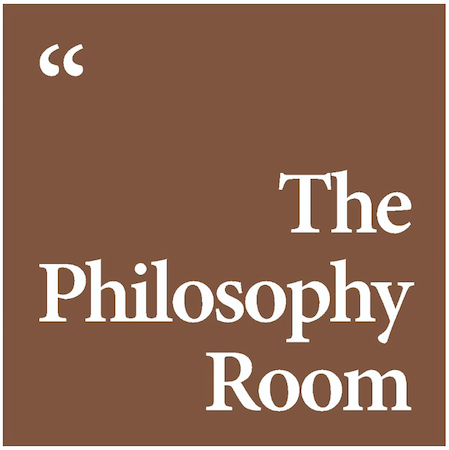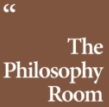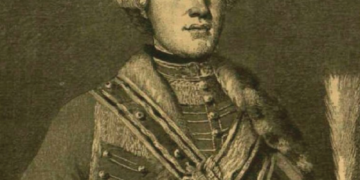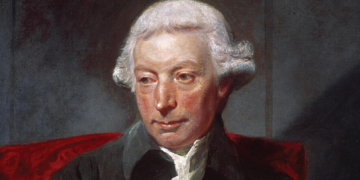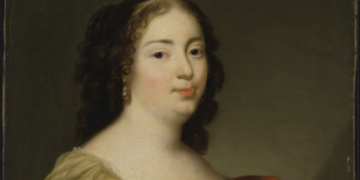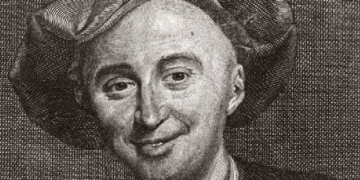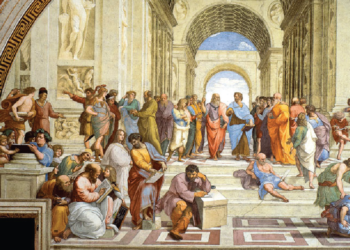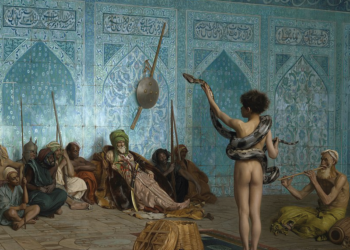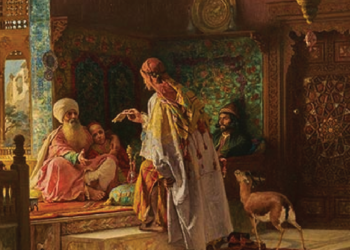Al-Mutanabbi
1) His Biography
Al-Mutanabbi, born Ahmad ibn al-Husayn al-Ju‘fi around 915 CE in Kufa, Iraq, is widely regarded as one of the most celebrated and influential poets in the Arabic literary tradition. His early life was marked by relative obscurity and instability, as he grew up in a region characterised by political unrest and tribal conflict. Though the details of his ancestry remain somewhat ambiguous, it is generally agreed that he belonged to a southern Arab tribe, and his upbringing in Kufa—then a significant intellectual centre—exposed him to classical Arabic literature and the diverse religious and political movements of the time.
From a young age, Al-Mutanabbi exhibited prodigious poetic talent. By his teenage years, he was already composing verse with remarkable fluency, demonstrating an early penchant for pride, ambition, and eloquence that would become hallmarks of his style. He also displayed an unusually strong belief in his own genius, a conviction that he often asserted through his poetry. This audacity would eventually lead him into both fame and conflict. In his youth, he became associated with a Shiʿi sectarian movement in Syria and even claimed prophethood—hence the epithet “Al-Mutanabbi,” meaning “the would-be prophet.” This controversial episode led to his imprisonment by the Abbasid authorities around 935 CE.
Upon his release, Al-Mutanabbi abandoned any religious pretensions and fully embraced his identity as a poet. He began seeking patrons across the Islamic world, offering his eloquence in exchange for support and protection. His travels took him to Aleppo, where he entered the service of Sayf al-Dawla, the Hamdanid emir. This period is often considered the pinnacle of his poetic career. Between 948 and 957 CE, he composed some of his most famous and powerful works, glorifying Sayf al-Dawla’s military campaigns against the Byzantine Empire and extolling his court. Despite this fruitful collaboration, the relationship eventually soured due to court intrigues and Al-Mutanabbi’s pride.
After leaving Aleppo, Al-Mutanabbi sought favour in Egypt under the Ikhshidid ruler Kafur. However, Kafur refused to grant him an official position, and Al-Mutanabbi responded with scathing satirical verse that tarnished Kafur’s image. His time in Egypt marked a turning point, as the tone of his poetry became more critical and disillusioned. He continued his itinerant lifestyle, travelling through various cities including Baghdad, Shiraz, and Ahvaz, often composing poems that reflected his experiences, ambitions, and frustrations. Despite his immense talent, his pride and frequent displays of arrogance made it difficult for him to maintain lasting alliances.
Al-Mutanabbi’s poetic persona was inseparable from his public image. He often styled himself as a figure of immense dignity, courage, and intellect, elevating the poet to the status of a sage or warrior. His verse celebrated self-worth, individual strength, and the power of the word, and he crafted his image with the same precision as his poetry. His reputation as both a literary genius and a deeply controversial character ensured that he was a subject of admiration as well as enmity during his lifetime.
He met a violent end in 965 CE near Baghdad when he was ambushed by bandits, reportedly including a man he had satirised in his poetry. Legend holds that Al-Mutanabbi had a chance to escape but chose not to flee, stating that it would be unworthy of the proud image he had projected in his verse. Whether true or apocryphal, this tale underscores how closely he lived by the values expressed in his poetry. His death marked the end of a turbulent and remarkable career, but his legacy would continue to shape Arabic literature for centuries.
Al-Mutanabbi’s life is often viewed as a poetic embodiment of ambition, defiance, and the pursuit of excellence. His biography, filled with drama, aspiration, and conflict, parallels the emotional intensity and intellectual richness of his poetry. He remains a singular figure in Arabic letters—a poet whose life and work were inseparably bound, and whose impact on the literary world is still keenly felt today.
2) Main Works
Poems in Praise of Sayf al-Dawla (Aleppo Period)
These are among Al-Mutanabbi’s most celebrated compositions, written during his years at the court of Sayf al-Dawla in Aleppo (c. 948–957 CE). They are filled with lofty panegyrics that glorify the emir’s military campaigns against the Byzantines and extol his virtues as a warrior and patron. At the same time, Al-Mutanabbi subtly inserts himself into these narratives, portraying himself as a figure of equal grandeur. These poems combine martial imagery with philosophical reflection and are considered masterpieces of Arabic court poetry.
Satirical Poems against Kafur al-Ikhshidi
Composed after Al-Mutanabbi’s departure from Egypt, these verses reflect his deep disappointment and bitterness towards Kafur, the black eunuch ruler who had denied him political favour. The poems are rich in biting satire, mockery, and personal insult, attacking Kafur’s character, background, and legitimacy. These works are iconic examples of hijā’ (invective poetry) and reveal Al-Mutanabbi’s prowess in using verse as a rhetorical weapon.
Self-Praising and Philosophical Poems
A substantial part of Al-Mutanabbi’s diwan consists of poems where he exalts his own intellect, courage, and poetic skill. These verses are highly individualistic and often carry philosophical reflections on fate, honour, and ambition. They feature some of his most quotable and aphoristic lines, many of which have become proverbial in the Arabic-speaking world. These poems reflect his desire to transcend the role of mere court poet and establish himself as a timeless sage.
Elegies and Reflective Poems
Though less frequent, Al-Mutanabbi did compose some moving elegies, mourning the deaths of friends, patrons, or fellow poets. In these poems, he explores themes of mortality, impermanence, and the fragility of human achievement. They reveal a more introspective and vulnerable side to his poetic voice, balancing the otherwise proud and assertive tone of his work.
Political and Social Commentary Poems
Throughout his life, Al-Mutanabbi used poetry to comment on the socio-political conditions of his time. Whether addressing war, court corruption, or shifting alliances, these poems blend personal experience with acute social critique. His ability to draw broad meaning from specific events allowed him to speak not only as a court poet but also as a commentator on the human condition.
Travel and Exile Poems
Al-Mutanabbi’s constant movement across the Islamic world is reflected in poems that chronicle his sense of exile, longing, and restlessness. These works convey a mix of physical journeying and emotional turmoil. Through vivid metaphors and narrative reflection, he turns travel into a poetic theme that mirrors his pursuit of recognition and belonging.
Collected Dīwān (Anthology of Poems)
The Dīwān of Al-Mutanabbi is a comprehensive collection of his surviving poetry, arranged thematically or by chronological order in various editions. It includes panegyrics, satires, elegies, philosophical musings, and personal reflections. The Dīwān not only showcases his stylistic brilliance and thematic breadth but also serves as a window into the political, cultural, and intellectual life of 10th-century Islamic civilisation.
3) Main Themes
Pride and Self-Assertion
Central to Al-Mutanabbi’s work is a powerful theme of personal pride and self-confidence. He consistently asserts his superiority as a poet and thinker, often elevating himself above rivals and even rulers. This theme manifests in bold declarations of courage, intellect, and poetic genius, reflecting his belief in individual greatness and destiny.
Panegyric and Political Loyalty
Many of Al-Mutanabbi’s poems serve as elaborate praises of patrons, particularly Sayf al-Dawla. Through vivid imagery and grand rhetoric, he celebrates the virtues and achievements of rulers, reinforcing their legitimacy and power. These panegyrics were instrumental in cementing his role as a court poet and shaping political narratives.
Satire and Invective
Al-Mutanabbi was a master of hijā’ (satirical and invective poetry). He wielded biting sarcasm and sharp wit to attack political figures, rivals, and enemies. This theme highlights his skill in turning poetry into a weapon, where insults and ridicule could undermine reputations and challenge authority.
Philosophical Reflection and Fate
His poetry frequently grapples with themes of fate, destiny, and the human condition. Al-Mutanabbi reflects on the limitations of power, the inevitability of death, and the quest for honour and immortality through art. These contemplative poems offer a deeper dimension to his otherwise assertive and proud persona.
War and Heroism
Inspired by the martial culture of his patrons, Al-Mutanabbi’s verse often glorifies bravery, strength, and the ideals of the warrior. His poetry vividly depicts battles, heroic exploits, and the harsh realities of conflict, celebrating the virtues associated with courage and honour in warfare.
Exile and Alienation
Given his itinerant life and frequent disputes, Al-Mutanabbi’s poetry often conveys feelings of exile, loneliness, and frustration. These poems explore the pain of rejection and the yearning for recognition and belonging, revealing his more vulnerable side beneath the proud exterior.
Language and Eloquence
Al-Mutanabbi’s work is a testament to the power of language itself. He frequently meditates on the potency of poetry, its ability to immortalise, to praise, and to wound. His careful use of metaphor, rhythm, and rhetorical devices showcases his belief in the transformative power of eloquence.
Human Ambition and Glory
Ambition is a recurring motif, where Al-Mutanabbi examines the desire for fame, power, and lasting legacy. His poetry urges readers to pursue greatness, often warning of the perils and responsibilities that accompany such aspirations. This theme underscores the tension between worldly success and the inevitability of mortality.
4) Al-Mutanabbi as Poet
Al-Mutanabbi stands as one of the most towering figures in classical Arabic poetry, renowned for his unmatched mastery of language, bold expression, and profound insight into human nature. His work marked a high point in the tradition of Arabic verse, combining the grandeur of classical poetic forms with the psychological complexity and personal intensity of his own experience. Often celebrated as a poet who transcended his era, Al-Mutanabbi redefined what it meant to be a poet in the medieval Islamic world, blending art with ambition, and eloquence with defiance.
One of Al-Mutanabbi’s defining traits as a poet was his extraordinary command of classical Arabic. His verses are marked by rich imagery, intricate rhyme schemes, and a mastery of metaphor that showcased his linguistic virtuosity. He was capable of crafting both grandiose panegyrics and cutting satire with equal skill, tailoring his language to suit the demands of praise, invective, or philosophical reflection. This versatility made his poetry resonate widely, influencing not only his contemporaries but also countless generations of poets after him.
Al-Mutanabbi’s poetry was also intensely personal, often centred on themes of pride, ambition, and self-assertion. Unlike many poets who wrote primarily to glorify patrons or reflect communal values, he elevated the figure of the poet as an individual of immense power and dignity. His verses frequently articulate a confident, sometimes arrogant, vision of the poet’s role as a seer, a warrior of words, and a maker of legacy. This focus on the self was revolutionary, positioning the poet not merely as a mouthpiece for others but as a commanding presence in his own right.
His role as a court poet further shaped his literary output. Al-Mutanabbi’s panegyrics to rulers like Sayf al-Dawla are masterpieces of political poetry, blending genuine admiration with sharp political insight. Through these works, he helped construct the image of the ideal leader—brave, just, and divinely favoured—while also enhancing his own status and securing patronage. However, his relationship with patrons was often fraught, as his pride and sharp tongue could turn praise into criticism, leading to political and personal tensions.
Beyond courtly praise, Al-Mutanabbi was a master of hijā’—satirical and invective poetry. His ability to wield satire as a potent weapon against rivals and enemies was legendary. These poems are characterised by their fierce wit, precise language, and psychological insight, exposing flaws and humiliating opponents with unparalleled skill. This facet of his poetry illustrates how literary art was deeply entwined with social and political power struggles of the time.
Philosophical reflection also played a significant role in Al-Mutanabbi’s work. He often meditated on fate, destiny, human ambition, and the search for immortality through art. His poetry explores the paradoxes of existence—the tension between pride and humility, power and vulnerability, life and death. These contemplations give his poetry a timeless quality, inviting readers across centuries to engage with universal questions through the lens of his eloquent verse.
Al-Mutanabbi’s influence on Arabic poetry is immense. His diwan became a foundational text in the study of classical Arabic literature, and his lines are frequently quoted as exemplars of eloquence and wisdom. Many later poets modelled their style on his, and literary critics have long debated and admired the complexity of his work. His legacy is not only that of a brilliant wordsmith but also of a poet who embodied the tensions and aspirations of his age in a uniquely powerful voice.
5) His Legacy
Al-Mutanabbi’s legacy stands as one of the most enduring and influential in the history of Arabic literature. Revered as perhaps the greatest classical Arabic poet, his work has shaped the Arabic poetic tradition for over a millennium, setting a standard for linguistic mastery, thematic depth, and personal expression that continues to inspire poets and scholars alike. His profound influence extends beyond the literary realm into cultural, social, and intellectual spheres throughout the Islamic world.
A key element of Al-Mutanabbi’s legacy is his unparalleled mastery of language and form. His poetry exemplifies the heights of classical Arabic eloquence, combining precision, musicality, and vivid imagery in a way that many consider unsurpassed. His ability to blend classical qasida structures with innovative themes of individualism and ambition created a model for poets who followed. His verses have been memorised, taught, and analysed across generations, serving as essential material in Arabic literary education.
Al-Mutanabbi’s bold self-assertion and personal pride transformed the image of the poet within Arabic culture. He redefined the poet not merely as a social commentator or panegyrist but as a figure of immense power and dignity—almost heroic in stature. This celebration of individual greatness resonated with audiences then and continues to do so today, influencing not only poetry but broader cultural notions of identity, honour, and creative genius.
His role as a court poet, navigating patronage and political turbulence, set important precedents for the relationship between poets and rulers. Through his eloquent panegyrics and trenchant satires, he demonstrated how poetry could be both a tool of political propaganda and a medium of personal expression and dissent. This dual capacity has inspired subsequent generations of poets to engage with power structures in similarly complex and nuanced ways.
The sharp invective and satire for which Al-Mutanabbi is also famous have become a hallmark of Arabic poetic tradition. His hijā’ poems remain benchmarks for linguistic skill and rhetorical force in the genre of poetic insult. This aspect of his work highlights the social and political role of poetry as a weapon, capable of influencing reputations and public discourse. The enduring popularity of his satirical verses attests to his genius in wielding language as a tool of both creation and destruction.
Moreover, Al-Mutanabbi’s philosophical reflections on fate, ambition, and the human condition have contributed to the intellectual heritage of the Arab and Islamic worlds. His poetry grapples with universal themes that transcend time and culture, inviting readers to reflect on life’s complexities, the pursuit of glory, and the limits imposed by destiny. This dimension of his work ensures that he is appreciated not only as a poet but also as a thinker and cultural figure.
Al-Mutanabbi’s influence has transcended the Arabic-speaking world. His poetry has been translated into many languages and studied internationally, contributing to a broader appreciation of Arabic literary art. His lines are quoted in diverse contexts—from literary criticism to popular culture—illustrating the continued relevance and vitality of his voice.
Finally, Al-Mutanabbi’s legacy is also personal and mythic. His life story—the mixture of genius, pride, controversy, and tragedy—has itself become part of his poetic legend. The image of a proud poet facing danger with unwavering dignity continues to captivate imaginations and underscore the inseparable bond between his life and his art.
